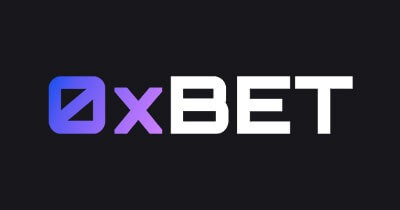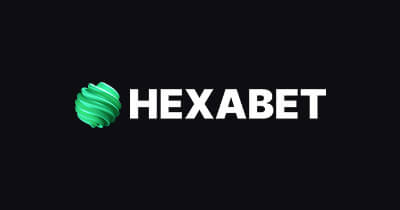Best Wallets for Crypto Casinos
Your rewards deserve better protection 🛡️A crypto casino wallet isn't optional. It's the difference between playing safely and getting your account frozen or your funds stolen. But which wallet actually works best when real money is on the line?
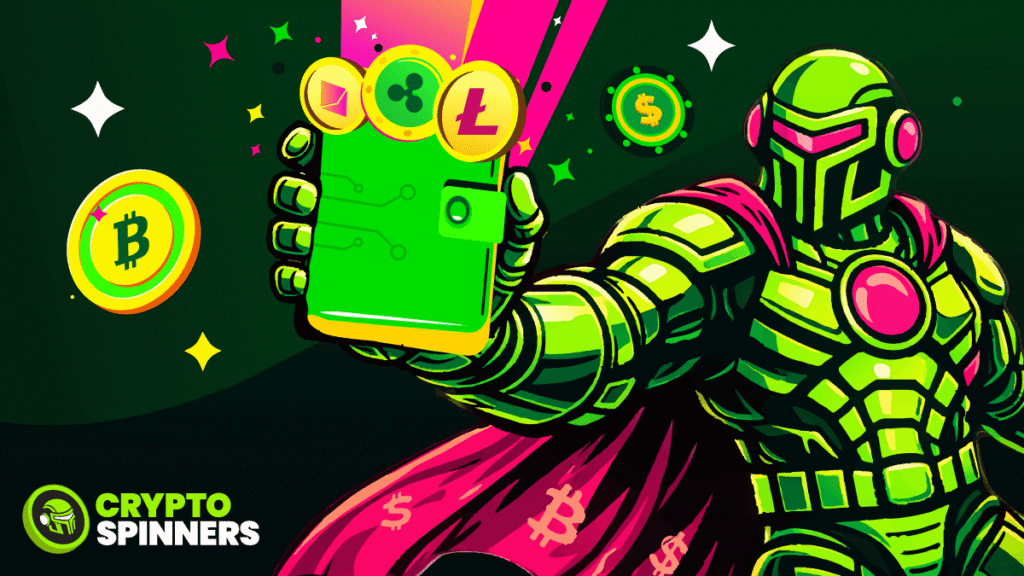
If you’re jumping into crypto casinos, you already know the stakes are different. No banks, no chargebacks, no safety net. Your wallet is the only thing standing between you and losing everything to a wrong click or a compromised device. This guide breaks down which wallets actually work for casino players, based on security ratings, real user feedback from Reddit, and secondary research across multiple platforms.
| 💡 TL;DR – MetaMask leads for Ethereum-based casinos with strong Web3 integration (CertiK score: 89.14) – Trust Wallet supports 70+ blockchains and 8 million assets with top security ratings (AAA from CER) – Best Wallet offers no-KYC anonymous gambling with support for 60+ chains – Not all wallets allow for casino transactions, which means you could get banned. To avoid this, research the wallets’ terms of service before signing up. – Finally, hardware wallets like Ledger or Trezor add extra security for large bankrolls and they can also double up as intermediary wallets |
| ⚠️ Disclaimer This article provides educational information and does not constitute financial advice. Cryptocurrency investments and gambling involve significant risk. Never invest or gamble with money you cannot afford to lose. Research your local laws regarding cryptocurrency gambling before participating. |
Best Crypto Wallets for Casino Players
Most casino players need a hot wallet that balances security with speed. The wallets below scored highest when we evaluated 20 options recommended by crypto gambling communities on Reddit.
| Wallet | Type | Compatible Networks | Platforms | Cost |
|---|---|---|---|---|
| Metamask | Hot | 50+ | Mobile and browsers | Free |
| Trust Wallet | Hot | 70+ | Mobile and browsers | Free |
| Exodus | Hot | 50+ | Mobile, desktop, browsers | Free |
| Best Wallet | Hot | 60+ | Mobile (browser extension coming) | Free |
| Coinomi | Hot | 125+ | Mobile only | Free |
| Trezor | Cold | 8,000+ | Hardware + desktop/mobile apps | $49 – $279 |
If you’re just getting started with smaller amounts (under $500), exchange wallets like Binance or Kraken work fine for quick deposits. But once you’re playing with serious money or hitting withdrawal limits, a self-custodial wallet becomes necessary.
1. Metamask

| Type of Wallet | Hot wallet (browser extension + mobile app) |
| Cryptocurrencies Supported | 50+ blockchain networks including Ethereum, Polygon, BNB Chain, Avalanche, Arbitrum, and all ERC-20 tokens |
| Platforms | Google Play Store, Apple App Store, Chrome, Firefox, Brave, Edge browser extensions |
| Features | Web3/dApp integration, built-in token swaps, NFT support, custom network configuration, hardware wallet compatibility, transaction simulation |
| CertiK Skynet Score | 89.14 (AA) |
| CER Security Rating | AA-AAA |
| Trustpilot Rating | ⭐ 1.5 (630+ reviews) |
✅ Pros
- Industry standard for Ethereum and EVM-compatible casinos
- Native Bitcoin support recently added
- Seamless integration with nearly every crypto casino and DeFi platform
- Open-source code audited by security researchers
- Hardware wallet pairing available (Ledger, Trezor)
- 100M+ users provide extensive community support
- Transaction previews prevent malicious contract interactions
❌ Cons
- Browser extension vulnerable to phishing attacks if users aren’t careful
- Gas fees can spike during network congestion
- Low Trustpilot score (though mainly due to scam victims blaming the platform)
Chances are that you’ve already heard about Metamask, because it has been dominating the scene for quite some time. Here’s why MetaMask basically owns Ethereum casinos – you plug in, and you’re connected instantly.
Platforms like BC.Game and MetaWin integrate so smoothly it feels native. Plus, the wallet literally shows you what each transaction does before you approve it, which saves you from those sketchy permission scams that wipe accounts.
The security architecture stores your private keys locally using AES encryption. MetaMask never sees your seed phrase or has access to your funds. That’s both the blessing and the curse. If you lose your 12-word recovery phrase, your crypto is gone forever.
For casino players, the real advantage is speed. Deposits hit your casino balance within seconds after blockchain confirmation. Withdrawals to MetaMask typically take under 10 minutes for ETH and ERC-20 tokens. The mobile app works smoothly for placing bets on the go, though the browser extension provides better control for managing multiple wallets.
2. Trust Wallet
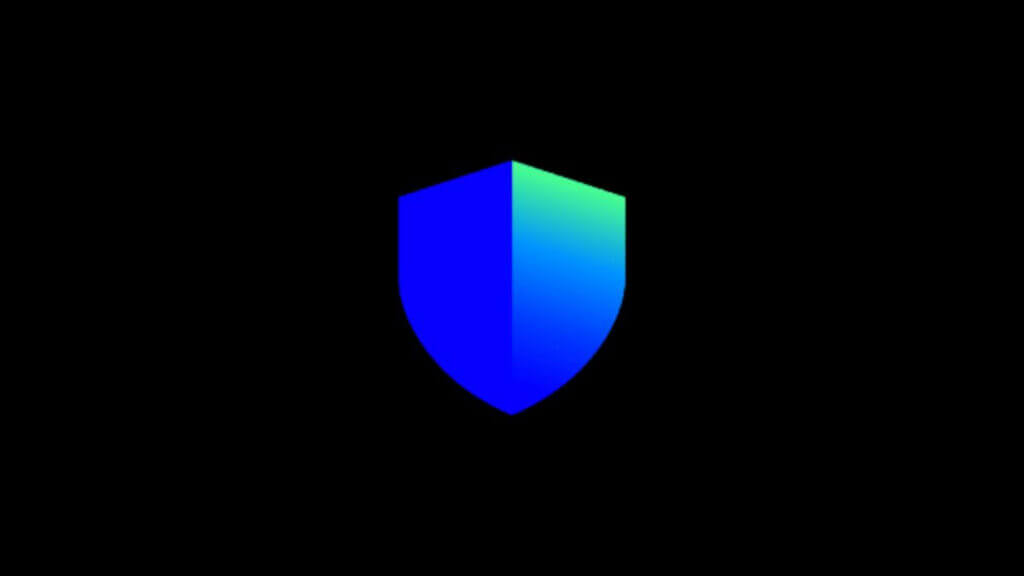
| Type of Wallet | Hot wallet (mobile app + browser extension) |
| Cryptocurrencies Supported | 70+ blockchains, 8 million+ assets including Bitcoin, Ethereum, Solana, BNB Chain, and extensive NFT support |
| Platforms | Google Play Store, Apple App Store, Chrome, Brave browser extensions |
| Features | Built-in DEX, staking for 20+ coins, NFT gallery, security scanner, Web3 browser, multi-wallet management, customizable networks |
| CertiK Skynet Score | 90.30 (AA rating) |
| CER Security Rating | AAA |
| Trustpilot Rating | No Profile Found |
✅ Pros
- Highest asset support of any wallet reviewed (8M+ tokens)
- Owned by Binance, providing strong institutional backing
- Security scanner warns about suspicious transactions and malicious contracts
- Native Bitcoin support alongside all major altcoins
- Open-source core code allows community audits
- Excellent mobile interface optimized for trading on the go
❌ Cons
- Limited gas fee customization compared to competitors
- No live customer support available
- Some users report occasional app crashes during high network activity
Trust Wallet claims to be a multi-chain wallet, and makes true on that promise. While MetaMask excels at Ethereum, Trust Wallet handles everything from Bitcoin to Solana to obscure altcoins with equal ease. This matters when you’re playing at casinos that accept multiple cryptocurrencies.
The built-in security scanner actively checks transactions before they execute. When you’re about to interact with a sketchy contract or send funds to a flagged address, you get a clear warning. It’s not foolproof, but it catches obvious scams that slip past less sophisticated wallets.
For casino withdrawals, Trust Wallet processes transactions as fast as the blockchain allows. Bitcoin withdrawals take 10-30 minutes depending on network congestion and the fee you set. ETH and BNB Chain withdrawals happen in under 5 minutes. The wallet automatically adjusts gas fees to ensure transactions go through without overpaying.
The main frustration is the customer support. If something goes wrong, you’re essentially on your own unless you can find answers in community forums. But given that Trust Wallet is non-custodial and open-source, there’s not much the support team could do anyway even if they responded quickly.
3. Exodus

| Type of Wallet | Hot wallet (desktop + mobile + browser extension) |
| Cryptocurrencies Supported | 50+ blockchain networks, 269+ assets with support for custom token additions |
| Platforms | Google Play Store, Apple App Store, Windows, Mac, Linux desktop apps, Chrome extension |
| Features | Built-in crypto swaps, staking for major coins (ADA, SOL, ATOM, ETH), Trezor hardware wallet integration (desktop), Ledger integration (mobile), NFT gallery, portfolio tracker |
| CertiK Skynet Score | 85.42 (A rating) |
| CER Security Rating | AAA |
| Trustpilot Rating | ⭐ 3.9/5 (4,200+ reviews) |
✅ Pros
- Intuitive interface perfect for beginners
- Desktop + mobile + browser coverage provides maximum flexibility
- Native integration with Trezor hardware wallets for enhanced security
- Built-in exchange saves time moving between platforms
- No account creation or KYC required
- Strong security marks across all assessment platforms
❌ Cons
- Variable swap spreads can cost more than dedicated DEXs
- No native 2FA (relies on device security only)
- Limited control over transaction fees compared to advanced wallets
- Partially open-source (not fully transparent)
Exodus consistently ranks as the most beginner-friendly wallet without sacrificing advanced features. The interface prioritizes clarity over cramming in every possible option. When you’re managing casino funds at 2am after a winning session, simple beats complex.
The built-in swap feature lets you convert between cryptocurrencies without leaving the wallet. This matters more than it sounds. Say you win big at a Bitcoin casino but want to move funds to an Ethereum casino for better game selection. With Exodus, you swap BTC to ETH in three clicks and deposit within minutes. No need to create exchange accounts or deal with KYC verification.
Reddit users gambling with crypto consistently recommend Exodus for the intermediary wallet strategy. When you withdraw from a casino, it goes to Exodus first. Then you can swap to a different coin, split amounts, and send to your main storage or exchange wallet. This breaks the direct connection that could get your exchange account flagged.
Exodus charges no fees for sending or receiving crypto. You only pay standard network fees that go to miners. The wallet swap feature does include a variable spread, typically 1-3% depending on liquidity. That’s higher than using a DEX directly, but the convenience justifies the cost for most users.
4. Best Wallet

| Type of Wallet | Hot wallet (mobile app) |
| Cryptocurrencies Supported | 60+ blockchains, 350+ cryptocurrencies with ability to add custom tokens |
| Platforms | Google Play Store, Apple App Store |
| Features | No KYC required, built-in DEX with best price routing, staking aggregator, fiat on/off-ramp without verification, early access to new token launches, MPC encryption, 2FA, biometric authentication |
| CertiK Skynet Score | N/A |
| CER Security Rating | N/A |
| Trustpilot Rating | ⭐ 1.9/5 (900+ reviews) |
✅ Pros
- Zero KYC requirements enable completely anonymous gambling
- Designed specifically with casino players in mind
- Fiat purchases without ID verification (rare feature)
- Early access to new meme coins and token launches
- Staking aggregator finds best APY across hundreds of pools
- MPC cryptography eliminates single points of failure
❌ Cons
- Newer platform without long track record (launched recently)
- No browser extension yet (mobile-only)
- Limited independent security audits available
- Smaller user base means less community support
- No major security rating scores yet from CertiK or CER
Best Wallet entered the market specifically targeting crypto casino players who value privacy above everything else. The no-KYC approach extends beyond just creating the wallet. You can buy crypto with credit cards, swap between coins, and cash out to fiat currency without ever providing identification.
This matters enormously for casino players in jurisdictions with unclear gambling regulations. When traditional banking rails track every transaction, crypto wallets like Best Wallet offer a legitimate privacy layer. That said, you still need to comply with your local tax laws on gambling winnings. Anonymous wallets don’t make taxes disappear.
The iGaming section inside Best Wallet directly connects users with verified casino sites offering exclusive bonuses. Instead of searching for crypto casinos manually, you browse options inside the wallet and connect with one tap. The platform vets casinos before listing them, providing some protection against outright scams.
Security relies on multi-party computation (MPC) cryptography rather than traditional seed phrases. Your private key gets split across multiple locations. Even if one component gets compromised, your funds stay safe. The downside is that this technology is newer and less battle-tested than traditional methods.
Best Wallet works best for players who prioritize speed and anonymity over having years of security audits. If you’re comfortable with cutting-edge technology and want the smoothest casino gambling experience, it’s worth trying. But don’t put your entire bankroll in a wallet this new.
5. Coinomi

| Type of Wallet | Hot wallet (mobile only) |
| Cryptocurrencies Supported | 125+ blockchains, 1,770+ assets including Bitcoin, Ethereum, and extensive altcoin support |
| Platforms | Google Play Store, Apple App Store |
| Features | SegWit support, built-in exchange (ShapeShift, Changelly integration), customizable transaction fees, cold staking, dApp browser, no KYC required |
| CertiK Skynet Score | N/A |
| CER Security Rating | N/A |
| Trustpilot Rating | ⭐ 4.5/5 (860+ reviews) |
✅ Pros
- One of the largest lists of supported coins in the industry (1,770+ assets)
- Strong privacy features (no KYC, no IP tracking, no transaction monitoring)
- Cold staking lets you earn rewards offline
- Customizable fees help optimize transaction costs
- Active since 2014, providing long operational history
❌ Cons
- Mobile-only limits functionality for desktop users
- Not open-source (less transparent than competitors)
- Smaller user base means less community support
- No hardware wallet integration
- Built-in exchange fees can be higher than dedicated platforms
Coinomi caters to portfolio diversification enthusiasts. If you’re playing at multiple casinos that accept different altcoins, Coinomi handles obscure tokens that bigger wallets ignore. The platform supports virtually every blockchain network that matters for gambling.
The wallet emphasizes privacy from the ground up. It doesn’t require email registration, doesn’t track your IP address, and doesn’t monitor transactions. For casino players who want to keep their gambling activity completely separate from their identity, Coinomi delivers.
Transaction speed matches what the underlying blockchain provides. Bitcoin withdrawals from casinos to Coinomi take 10-30 minutes. Ethereum and other faster chains complete in under 5 minutes. The customizable fee feature lets you choose between paying more for speed or saving money with slower confirmations.
The mobile-only limitation is Coinomi’s biggest weakness. Managing large amounts on a phone feels less secure than having desktop options. There’s no way to connect hardware wallets for cold storage either. Use Coinomi for active gambling funds, but keep long-term holdings in more secure options.
6. Trezor
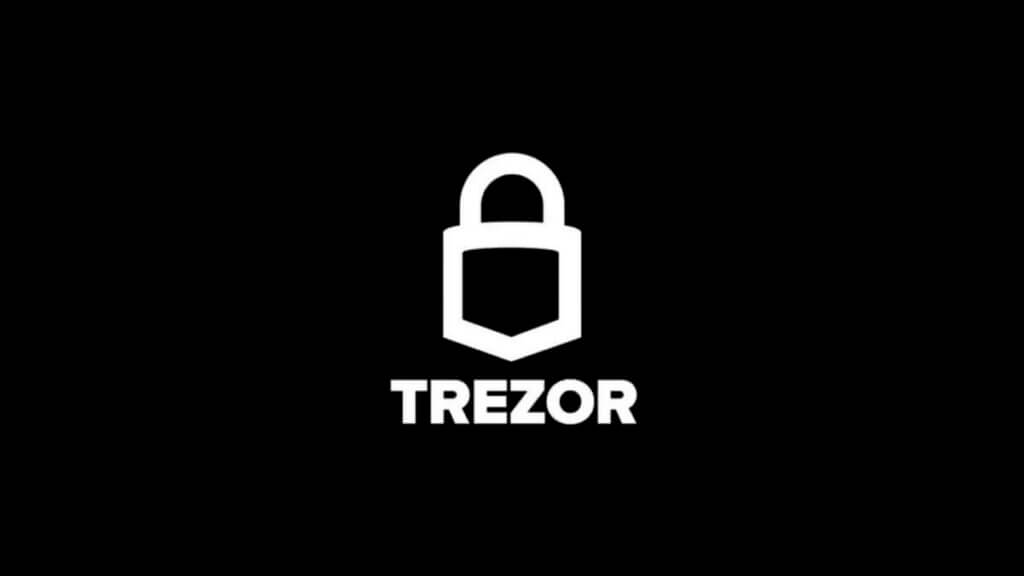
| Type of Wallet | Cold wallet (hardware device) |
| Cryptocurrencies Supported | 8,000+ coins |
| Platforms | Hardware device connects to Windows, Mac, Linux, Android, iOS via Trezor Suite |
| Features | Offline key storage, on-device transaction signing, backup seed phrase, PIN protection, fully open-source firmware, touchscreen display (Safe 3 model) |
| CertiK Skynet Score | N/A |
| CER Security Rating | C (for Trezor Suite app) |
| Trustpilot Rating | ⭐ 4.6/5 (1,600+ reviews) |
✅ Pros
- Fully open-source firmware allows complete code transparency
- Security researchers can independently verify every line of code
- Supports 8,000+ cryptocurrencies (highest of any hardware wallet)
- Simpler interface than competitors, easier learning curve
- Zero internet connection needed for key storage
- PIN protection prevents theft if device is physically lost
- Community-driven development with active bug bounty program
❌ Cons
- Lower CER security rating (C) compared to some alternatives
- Requires manual firmware updates
- Smaller ecosystem of integrations versus Ledger
- Slower transaction speeds on older models
- No built-in staking interface like Ledger
Trezor built its reputation on complete transparency. Every line of code is open-source and publicly auditable. For tech-savvy crypto gamblers who want to verify their wallet’s security themselves rather than trusting a company’s word, Trezor delivers that confidence.
The hardware sits completely offline until you connect it. Your private keys never touch the internet, eliminating remote hacking entirely. When you need to withdraw casino winnings, you plug in the Trezor, confirm the transaction on the device’s screen, and disconnect. The device signs the transaction in isolation, then broadcasts it through your computer.
Trezor’s open-source approach means the community actively monitors the code. If a vulnerability existed, thousands of developers would catch it. This is why security experts trust Trezor even with large amounts. You’re not betting on one company’s security team. You’re betting on the entire cryptography community.
The interface runs simpler than Ledger’s ecosystem. You don’t get fancy staking dashboards or NFT galleries built in. Trezor Suite handles the basics cleanly: sending, receiving, and managing your holdings. If you want advanced features, you connect to third-party dApps like Aave or Curve. This modularity means you pick which platforms you trust, rather than Trezor choosing for you.
What are Crypto Wallets?
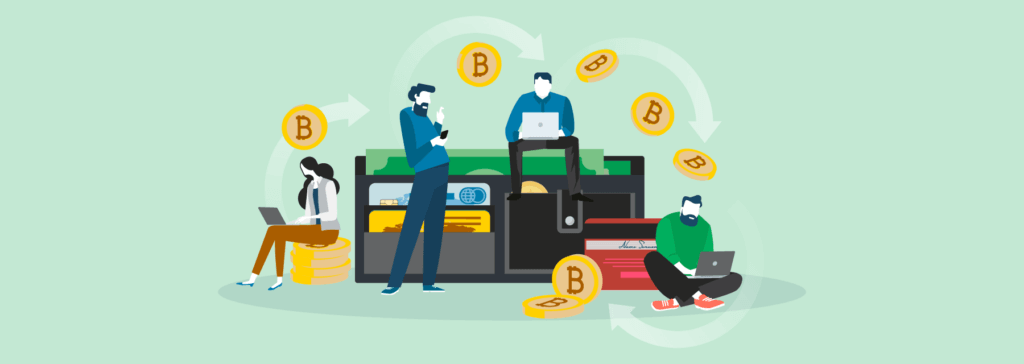
Let’s clear a common misconception first – crypto wallets don’t actually store cryptocurrency. Your coins exist on the blockchain, a public ledger that everyone can see. What your wallet stores are the keys to access and control those coins.
Think of your crypto wallet as a safety deposit box at a bank. Anyone can see the box exists and how much is inside (that’s the public blockchain). But only someone with the key can open it and move the contents.
Your wallet has these two types of keys –
- Public key: Like your email address, you share this with anyone who wants to send you crypto. It’s safe to post publicly. When a casino processes your withdrawal, you give them your public key (wallet address).
- Private key: Like your email password, this proves you own the wallet. Anyone with your private key controls your crypto completely. You never share this with anyone, ever. Casinos never need your private key.
And then, there’s a recovery phrase (also known as seed phrase), which is a 12-24 word backup that can recreate your private keys if you lose access to your wallet. Losing your seed phrase with no backup means your crypto is gone forever. No company can recover it, not even the wallet creator.
| Here’s an example for better understanding – Let’s assume you win $3,000 at a crypto casino. ▶️ The casino transfers those funds from their wallet address to your wallet address (the public key). ▶️ The blockchain records this transaction. ▶️ Your wallet app detects the incoming transaction using your public key. ▶️ To spend those winnings, you use your private key to authorize new transactions. The private key never leaves your device. |
Types of Crypto Wallet
Now that we know what a crypto wallet is, let’s familiarize ourselves with different types of crypto wallets.
1. Hot Wallets (Connected to Internet)
These software wallets run as apps on your phone, extensions in your browser, or programs on your computer. They’re called “hot” because they maintain a constant internet connection.
Hot wallets prioritize convenience, which means you can deposit to a casino, place bets, and withdraw winnings in minutes. Hot wallets work best for active casino funds, not long-term storage. The tradeoff here is security. If malware infects your device, hackers could potentially steal your private keys.
Examples: MetaMask, Trust Wallet, Exodus, Best Wallet, Coinomi
2. Cold Wallets (Offline Storage)
Hardware wallets store your private keys on a physical device disconnected from the internet. To use them, you plug the device into your computer or phone, confirm transactions on the device screen, then disconnect.
Unlike hot wallets, cold wallets maximize security at the cost of convenience. Hackers can’t remotely access keys that aren’t online. But you need the physical device with you to move funds.
Examples: Ledger Nano, Trezor Model One, Trezor Safe 3
3. Exchange Wallets (Custodial)
When you keep crypto on Binance, Coinbase, or Kraken, that’s an exchange wallet. The exchange controls the private keys, not you. This creates counterparty risk if the exchange gets hacked or goes bankrupt. More importantly for casino players, exchanges ban accounts for gambling activity.
| 👉 Note about exchange wallets and gambling Some services like Coinbase, CashApp, and Robinhood prohibit casino deposits and withdrawals. In other words, if these transactions are flagged, your funds can get frozen and/or your account can be banned. To avoid this, we’d suggest using services that do not explicitly prohibit fund transfer to gambling sites. |
Why You Need a Wallet for Crypto Casinos
Now, let’s answer the pressing question here – why do you need a crypto wallet? Well, there are quite a few important reasons why you should be considering one.
- Complete Financial Control: Unlike traditional online casinos where you’re asking the platform’s permission to withdraw, crypto casinos can’t stop your withdrawal once it hits your wallet. Your keys, your coins, your control.
- Privacy Protection: Crypto wallets don’t require personal information. No names, addresses, or ID verification (for most wallets). Your gambling activity stays separate from your identity.
- Instant Access to Winnings: Most crypto casinos process withdrawals in under 30 minutes. Compare that to 3-7 business days for bank transfers or card withdrawals. Time value matters when you’re winning.
- Multi-Casino Flexibility: One wallet works across hundreds of crypto casinos. Instead of managing payment methods at each casino separately, your wallet becomes your universal banking interface.
- Protection from Casino Issues: If a casino gets shut down or has technical problems, funds in your wallet stay safe. You’re not leaving money trapped in a platform you don’t control.
How to Choose the Right Crypto Wallet
Not all wallets suit all players. Your choice depends on which coins you’re gambling with, how much security you need, and whether you prioritize convenience or protection.
1. Wallet’s Terms of Services
As mentioned earlier in our guide, not all crypto exchanges and wallets allow you to transfer funds to and from casino and betting sites. This is why you need to carefully review the exchange’s and wallet’s terms of usage to see if you can use it for casino activities. You can also
2. Supported Cryptocurrencies
Once you have selected a few wallets, start by checking which coins your preferred casinos accept. Bitcoin casinos need Bitcoin support (obviously). But many newer casinos accept 10+ different cryptocurrencies. Your wallet should support your primary gambling coins plus a few extras for flexibility.
Look for wallets that allow custom token additions. Casino platforms sometimes create their own reward tokens or accept newer meme coins. Wallets that only support pre-approved coins will limit you over time.
3. Security (CER Security Rating and CertiK Skynet Score)
There are two independent platforms that assess wallet security – CertiK Skynet and CER Security. Here’s some quick info on both platforms –
- CertiK Skynet Score rates wallets on a scale up to 100. Scores of 85+ earn AA ratings (excellent). Scores below 75 indicate significant security gaps. CertiK evaluates code quality, past incidents, bug bounties, and penetration testing results.
- CER Security Rating uses letter grades from AAA (best) to DDD (worst). The rating examines server security, user security features, penetration tests, and proof of reserves for custodial elements.
These ratings aren’t perfect, but they provide objective third-party validation. A wallet with strong ratings from both platforms has survived serious security scrutiny.
Plus, some additional security features to look for are two-factor authentication, biometric logins, transaction simulations, malicious contract warnings, hardware wallet integration.
4. Acceptance at Casinos
You also need to check whether the wallet you have chosen is compatible with the casino platform. Ethereum-focused casinos integrate seamlessly with MetaMask. Multi-chain casinos work better with Trust Wallet or Exodus. Some casinos let you connect via WalletConnect, which supports dozens of different wallets.
Before committing to a wallet, test it with your favorite casino. Create the wallet, make a small deposit, play a bit, then withdraw. Confirm the entire flow works smoothly. These five minutes of testing prevent future frustration.
5. Available Platforms
Casino players switch between devices constantly. You might research games on desktop but place bets on mobile. Your wallet should follow you. At a minimum, the wallet should be available on Android and iOS. It’d be even better if the wallet offers browser extensions. And some wallets go that extra mile and offer native desktop apps.
6. User Feedback and Rating
Another important thing to check is user reviews, especially the ones on online forums like TrustPilot and Reddit. Here, you will get an honest overview of how other users feel about the wallet and give insights into their experience.
- App stores: Look at overall rating plus number of reviews. A 4.7 rating from 500,000 reviews means more than 5.0 from 100 reviews.
- Trustpilot: Low ratings often reflect support quality, not security. Read the actual complaints. Are people losing funds to hacks, or just unhappy with slow support responses?
- Reddit communities: Search r/CryptoCurrency and r/gambling for the wallet name. Look for posts about casino use specifically.
That being said, patterns matter more than individual reviews. One person losing funds to a scam doesn’t indict the wallet. But dozens of people reporting the same security vulnerability definitely does.
Safety Tips for Your Crypto Wallet
Now, before you create your first crypto wallet or switch to a new one, here are some tips to keep you safe.
1. Never Share Your Seed Phrase: Your 12-24 word recovery phrase is the master key to your wallet. Legitimate support teams never need it. No casino support, no wallet support, nobody. Anyone asking for your seed phrase is attempting to steal your funds.
2. Enable Two-Factor Authentication Everywhere: Use authenticator apps like Google Authenticator or Authy, not SMS. Phone carriers can be social-engineered into transferring your number to a hacker’s device.
3. Keep Software Updated: Wallet developers patch security vulnerabilities constantly. Outdated software exposes you to known exploits that hackers actively target.
4. Use Strong, Unique Passwords: Your wallet password should be 20+ characters, completely unique, and stored in a password manager. Reusing passwords from other sites creates cascading failure if one site gets breached.
5. Verify Website URLs Carefully: Phishing sites create fake versions of popular wallets. Always type URLs manually or use official app store downloads. Bookmark the real site after verifying it.
6. Test Small Amounts First: Before sending large withdrawals, test with $10 – $20. Confirm the transaction arrives correctly, then send the rest. Crypto transactions can’t be reversed.
7. Consider Hardware Wallets for Large Holdings: Any amount over $5,000 – $10,000 warrants hardware wallet protection. Hot wallets suit active gambling; cold wallets suit long-term storage.
Final Thoughts
The right crypto wallet can take your whole online casino experience from anxious to confident. Crypto (and the FinTech industry in general), has matured over the last few years, so we have a lot of wallet services to choose from. Whether you choose MetaMask for its Ethereum dominance, Trust Wallet for multi-chain flexibility, or Best Wallet for no-KYC anonymity, you’re taking control of your casino funds – something that isn’t really possible in regular casinos.
And of course, security is an important part of this whole process. Trust in these tools come from understanding how they work, not blindly trusting them. Take time to test wallets with small amounts. Read about common scams. Join communities where experienced players share lessons learned the hard way. Your due diligence today prevents expensive mistakes tomorrow.
Responsible Gambling: Always check the legal status of online gambling and cryptocurrency in your jurisdiction, and only play at licensed operators that offer responsible gambling tools such as limits, time-outs, and self-exclusion. If you feel your gambling is no longer fun or is affecting your life, seek professional help immediately and consider using national helplines or self-exclusion programs.

